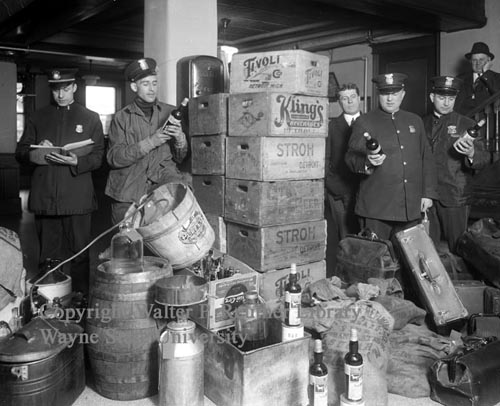 |
Police during prohibition raid admire a newly captured shipment, c. 1928.
The ratification of the 18th Amendment nationalized prohibition in 1919. Supporters of the Volstad amendment believed that: by abolishing alcoholic consumption, one might also abolish crime, poverty, and broken families. Detroiters had a different take on the law. Detroit was a city with strong cultural ties to alcohol and subsequently a large number of breweries. During the 1920’s and the beginning of the Depression, rum running was aid to be Detroit’s second largest industry next to automobiles, bringing in an estimated 215 million dollars in 1929. Violent crime soared as organized crime virtually took over parts of the city, buying off policemen and collecting protection fees from citizens. Gangs, most notably the infamous Purple Gang, fought in turf wars over control of shipments and territory, all vying to supply the estimated 5,000-25,000 illegal drinking establishments scattered throughout the city.
|